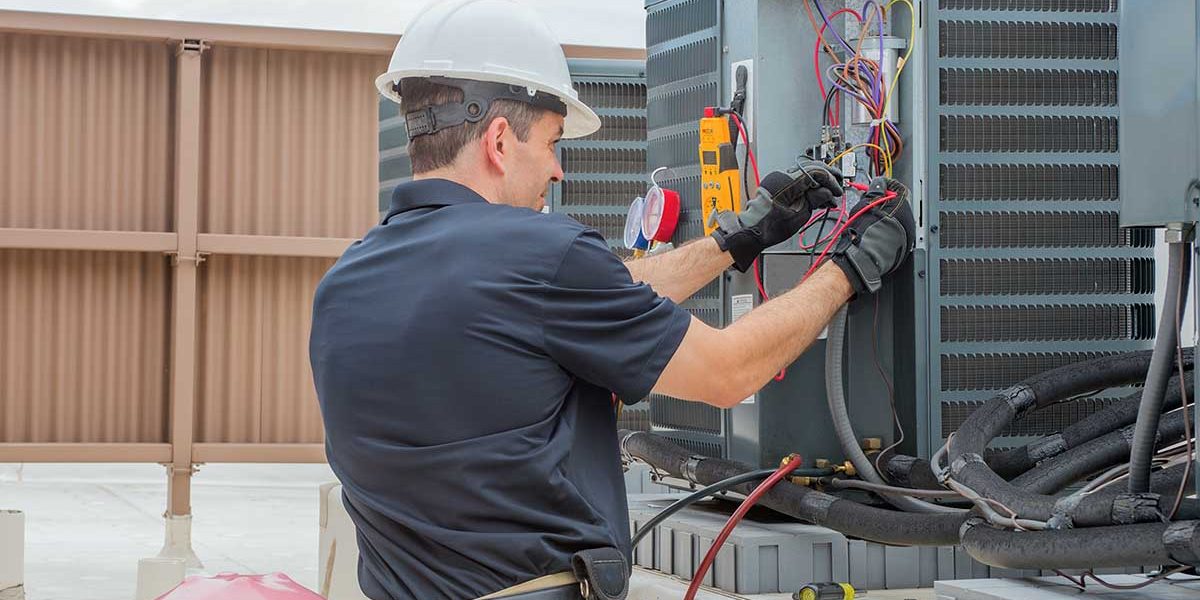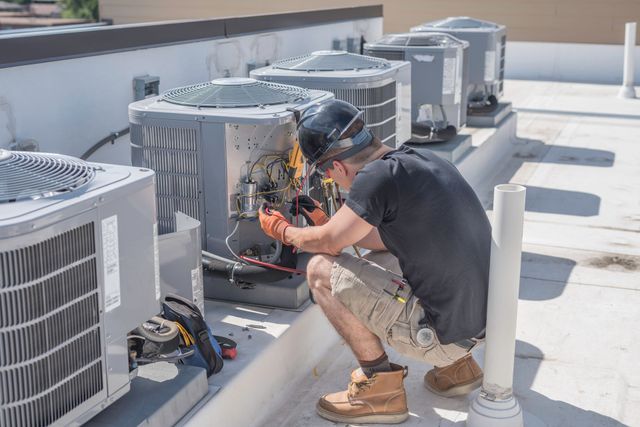How to Boost Energy Effectiveness With Your HVAC System and Heating System Upgrades
As power expenses continue to climb, the significance of improving energy efficiency through HVAC system and furnace upgrades can not be overemphasized. Assessing your present system's performance and taking into consideration energy-efficient alternatives are crucial initial steps. Along with picking models with high SEER and AFUE rankings, optimizing thermostat settings and enhancing insulation can substantially affect overall efficiency. Nevertheless, the journey in the direction of making the most of power effectiveness does not finish there; understanding the nuances of normal maintenance and its lasting benefits is just as crucial. What are the details techniques that can result in significant financial savings and boosted convenience?
Assess Your Existing System
Before getting started on any type of upgrades, it is important to assess your existing cooling and heating system and heater to recognize their performance and performance. This preliminary evaluation offers a structure for identifying areas that call for renovation and educates decisions concerning prospective upgrades. Begin by examining the age of your cooling and heating system, as out-of-date versions might do not have contemporary energy-saving functions.

Power intake documents will also be critical in gauging your system's operational expenses. By evaluating utility bills, you can determine patterns of energy use and determine spikes that call for additional investigation. Consider conducting a professional power audit to obtain an expert assessment of your system's performance. This thorough examination will certainly lead you in making notified choices around necessary upgrades, making sure that your financial investments in energy efficiency yield the desired advantages.
Upgrade to Energy-Efficient Models
Upgrading to energy-efficient models is a pivotal action in enhancing the overall performance of your HVAC system and furnace. These contemporary devices are created to eat less energy while delivering optimum heating & cooling, leading to considerable price financial savings on utility bills and a lowered ecological footprint.
When thinking about an upgrade, search for versions that have high Seasonal Power Efficiency Ratios (SEER) for a/c and Annual Gas Application Performance (AFUE) rankings for heating systems. These scores suggest the efficiency of the devices, with higher numbers reflecting better efficiency. Energy-efficient models often include advanced technologies, such as variable-speed electric motors and wise thermostats, which additionally enhance energy financial savings.
In addition, lots of energy-efficient cooling and heating systems are equipped with enhanced insulation and much better sealing, which reduce energy loss and improve interior convenience. great post to read hvac. While the preliminary financial investment might be greater, the long-lasting cost savings on energy expenses and prospective tax obligation motivations for using energy-efficient home appliances can offset this expenditure substantially

Inevitably, upgrading to energy-efficient versions not only adds to an extra lasting future yet additionally raises the comfort and performance of your home or service.
Optimize System Settings
To take full advantage of the performance of your HVAC system and furnace, it is vital to maximize system setups customized to your details needs. Begin by establishing your thermostat to an energy-efficient temperature. The United State Department of Energy suggests a winter season setup of 68 ° F when you are conscious and reducing it while you rest or are away. In summer season, go for 78 ° F throughout the day.
Make use of programmable or wise thermostats that permit you to schedule temperature changes immediately. This ensures your system runs just when needed, minimizing power intake. In addition, make certain that your system is readied to run in the proper setting-- home heating in winter season and cooling in summer-- while staying clear of the continual fan alternative unless needed for air flow.
Think about zoning systems that enable personalized comfort in different areas of your home, additionally boosting performance. By fine-tuning these setups, you can achieve significant energy savings while keeping a comfy living environment.
Improve Insulation and Sealing
A well-insulated home is essential to making the most of the effectiveness of your HVAC system and heating system. Appropriate insulation website here lowers the work on these systems, consequently saving power and lowering energy expenses.
In addition to insulation, securing voids and cracks is essential. Pay unique focus to windows, doors, and any penetrations in wall surfaces, such as electric outlets and plumbing fixtures. Weatherstripping and caulking can properly secure these openings, stopping drafts that endanger your HVAC performance.
Moreover, ensure that ducts are properly insulated and sealed. Leaky ducts can result in considerable energy losses, decreasing system performance. Making use of mastic sealer or metal tape to seal duct joints can improve airflow and efficiency.
Arrange Regular Maintenance
Normal upkeep of your HVAC system and heater is essential for ensuring optimum performance and longevity. Throughout maintenance, a certified service technician will certainly clean and replace filters, check cooling agent levels, check ductwork for leakages, and review overall system procedure.
It is recommended to schedule maintenance a minimum of two times a year-- as soon as in the springtime for the air conditioning system and when in the succumb to the heater. furnace repair. Regular maintenance helps preserve consistent indoor temperatures, making certain comfort throughout the year. In addition, a properly maintained system operates more efficiently, which can result in visible reductions in energy costs
Neglecting upkeep can result in reduced efficiency, enhanced deterioration, and eventually, system failure. By prioritizing normal service, homeowners can stay clear of unforeseen break downs and view it now guarantee their HVAC system and heater operate at peak efficiency. Buying upkeep is an essential action in enhancing energy performance and developing a more lasting home atmosphere.
Conclusion
Finally, improving power efficiency within cooling and heating systems and furnace upgrades is important for reducing energy usage and enhancing general comfort. A systematic strategy that consists of assessing the existing system, buying energy-efficient designs, optimizing settings, enhancing insulation, and scheduling normal maintenance can bring about significant advantages. Executing these strategies not only lowers energy expenses but likewise contributes to an extra sustainable atmosphere, making it important for house owners to focus on these upgrades.